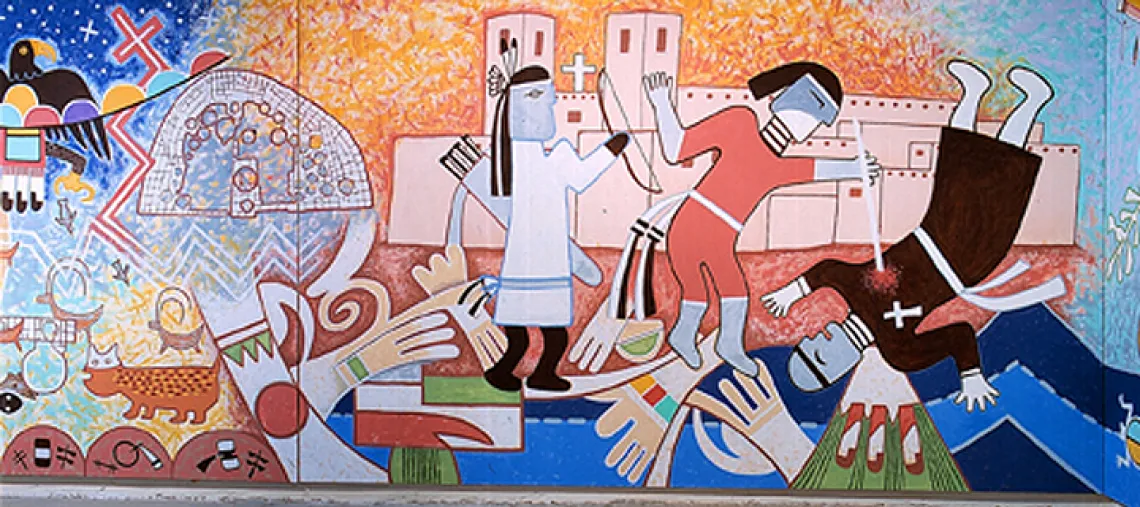When

Moquis and Kastiilam: Hopis, Spaniards. and the Trauma of History
The Hopi History Project is an ongoing formal collaboration between the University of Arizona and The Hopi Tribe. Our primary goal is to better understand the nearly three centuries of contact and conflict between the Hopis and the Spanish empire, which began with the Coronado expedition in 1540. To do so, we compare and contrast the Spanish colonial documentary record about the "Moquis," the Spanish term for Hopis, with Hopi oral traditions about the "Kastiilam," the Hopi term for Spaniards. For nearly five centuries, records written by outsiders -- European and Euroamerican missionaries, soldiers, and government officials -- have dominated our understanding of the Hopi past. Hopi oral traditions complement and contradict that narrative by providing Hopi narratives about the outsiders who tried to change or destroy them as a people. It is a story of negotiation, resistance, and historical trauma that still affect the Hopi people today.
The first fruits of the project are two volumes published by the University of Arizona Press entitled Moquis and Kastiilam: Hopis, Spaniards. and the Trauma of History. With the assistance of the UA College of Education and Hopi teachers, we are now beginning to develop K-12 curricula to incorporate Hopi historical perspectives within the education of Hopi youth. This Southwest Center seminar, co-sponsored by the Museum of Indian Arts and Cultures, will discuss the project and its objectives. Dr. Tom Sheridan of the UA Southwest Center will provide an overview. Stewart B. Koyiyumptewa of the Hopi Cultural Preservation Office will discuss his interviews with Hopi elders and what the project means to the Hopis themselves. Dr. Jeremy Garcia (Hopi/Tewa) of the UA College of Education will talk about the first stages of the curriculum development and our ongoing efforts to decolonize Hopi history.
Register here for the Zoom session
Cameras and microphones aren’t necessary. During the presentation, you can ask questions using the chat feature in Zoom. We will be monitoring them and will submit them to the panelists.
Don't worry if you can't join live. We will upload the video of the presentation to our YouTube channel. We will also share links on our Facebook and Twitter and in our next newsletter.
For any question, please send us a message at cquinteroh@arizona.edu

